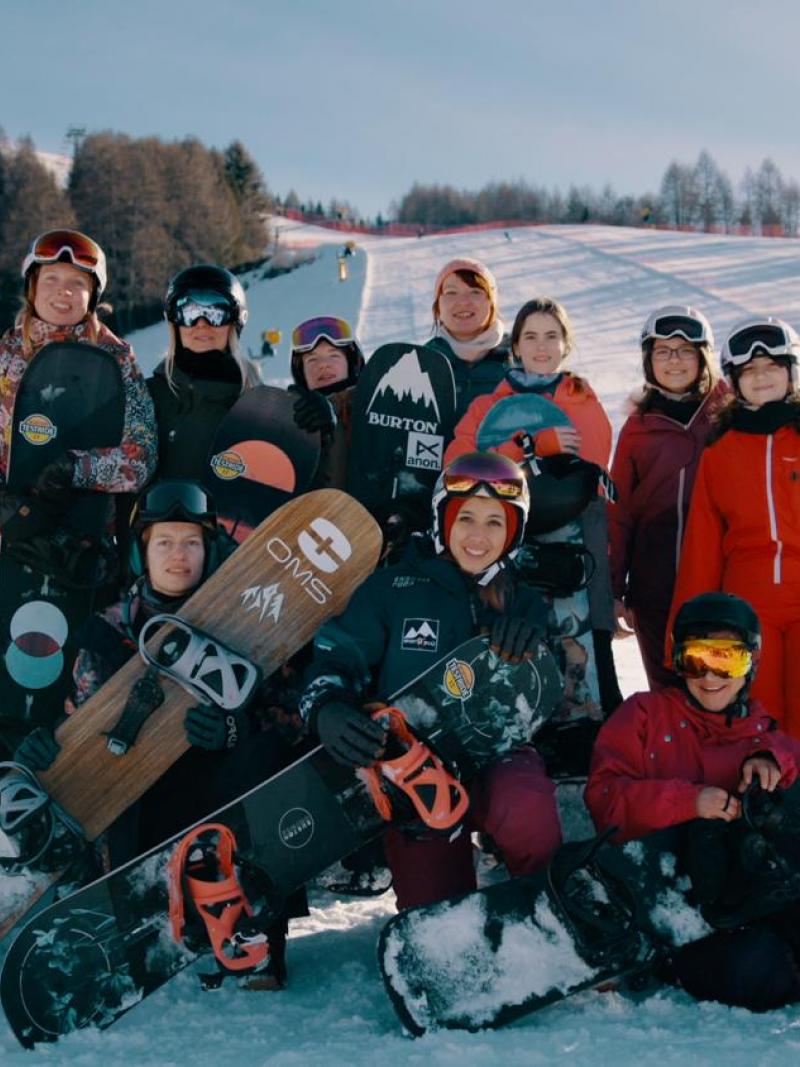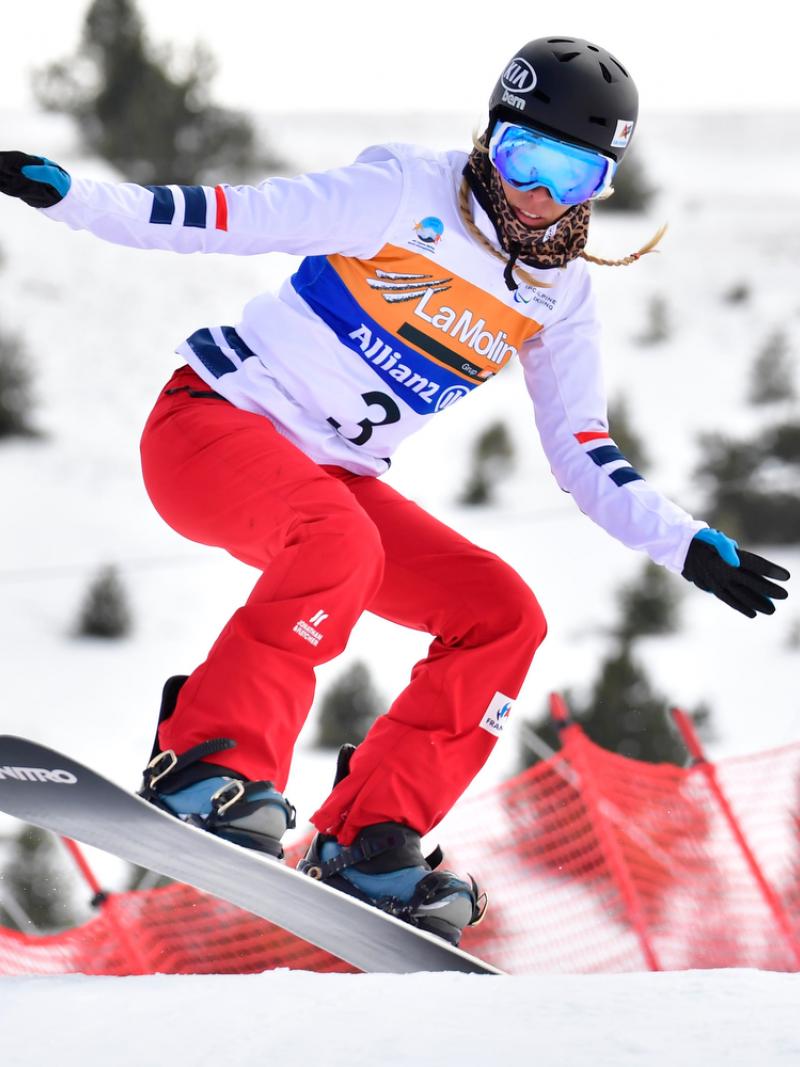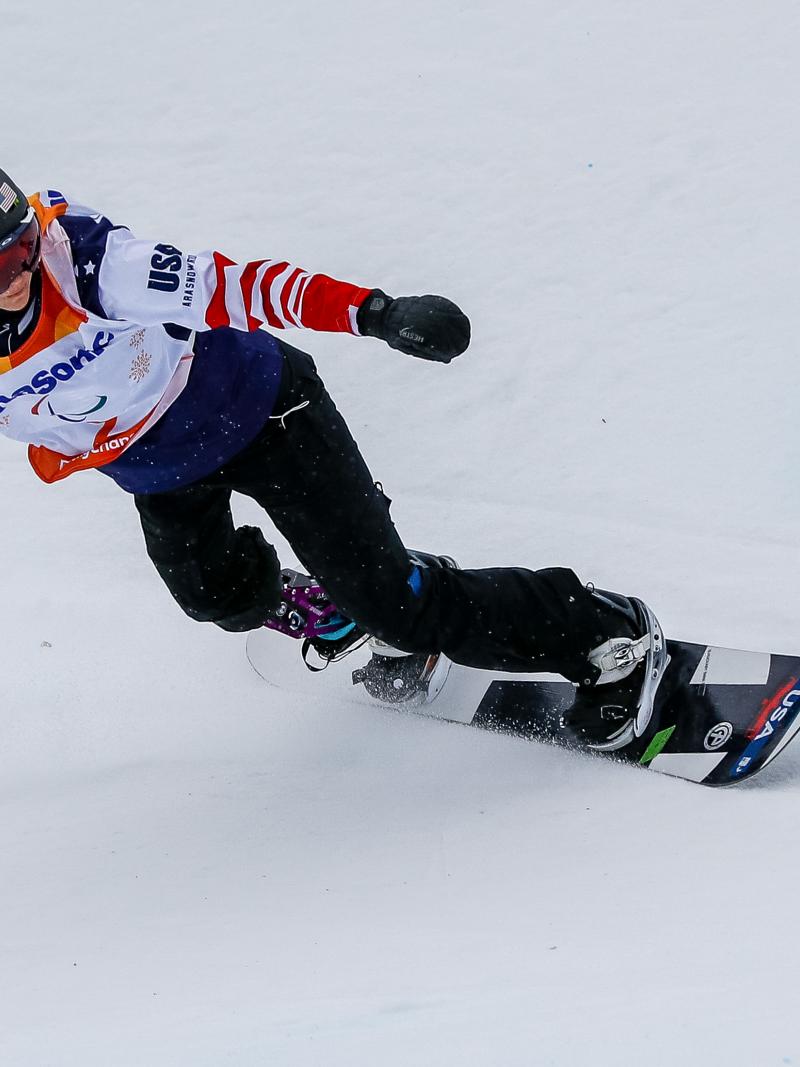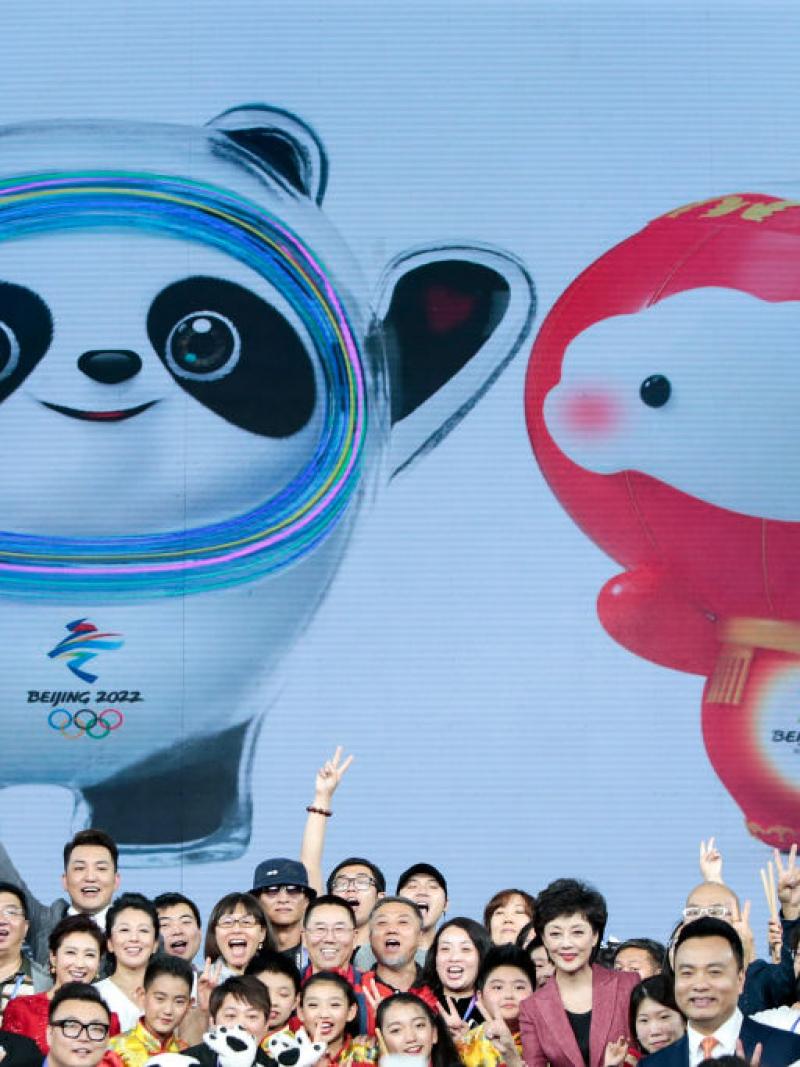Armenia’s newly-created Para snowboard team sets big goal
Three female and one male rider dream with a ticket to Beijing 2022 to boost the sport and attract more athletes 18 Jan 2021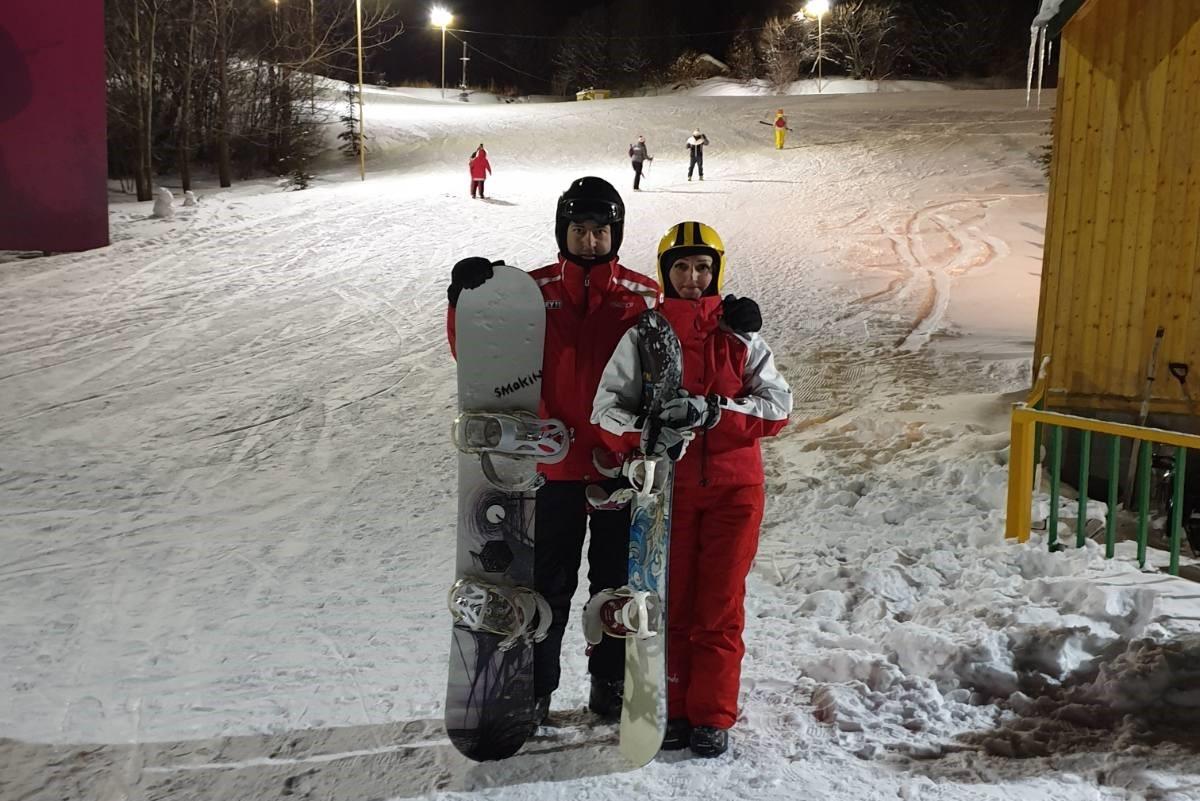
Less than two years ago the four athletes on the Armenian Para snowboard team were just learning how to ride down a mountain. Now tackling the trickiest slopes and beating local amateurs, they cannot imagine life without the sport.
And with the Beijing 2022 Paralympic Winter Games getting closer, they are determined to stand alongside the world’s elite in spite of all the challenges standing in their way.
Beating the odds
The group, made up of three female riders and one male rider, is a tight-knit one. Before they started snowboarding, they went alpine skiing together. Some, like Artak Poghosyan and Lusine Karapetyan, also trace their impairments to the same source - the 1988 earthquake, which killed more than 25,000 Armenians.
“The atmosphere is very friendly, very warm because we’ve known each other a long time,” Karapetyan said. “We are more than friends.”
Poghosyan is the most experienced member of the squad. He did alpine skiing for 10 years, but not feeling optimistic about his Paralympic prospects, he turned to snowboarding instead and invited Karapetyan to join him.
An alpine skiing devotee for 30 years, Karapetyan was initially hesitant to make the switch. But after two particularly productive training camps in the United Arab Emirates and the Republic of Korea, she embraced snowboarding.
“The first time I tried it, I didn’t like it because it was a bit difficult for me, but at the end of the trip in Dubai I liked it because I saw that I could do it and that even age was not an issue,” she said. “When we went [back to Armenia], I couldn’t ski again. I tried skiing. I took skis and went up to the mountain and then I understood that no, I don’t like it.”
Training in Para snowboard in Armenia, however, is not easy.The athletes have to cover the training expenses themselves. All of the them - except Anna Safaryan who is a student - have full-time jobs to finance their snowboarding.
“They need to work and provide a living for their families. They would want [sport] to be their main job, but automatically it’s the second one because there is no state support,” Poghosyan said. “There is no funding. If they go for training, they need to pay for each ride. They don’t have the snowboards, they rent them.”
Buying a quality, foreign-made snowboard is equivalent to a month’s salary for the Armenian athletes, and even the second-hand ones are not cheap. So far, the athletes have not succeeded in finding any used boards that are good quality and within their budget.
Organisations in France and Iran offered to hold free training camps for the Armenian team in 2020, but with the COVID-19 pandemic, these plans were put on hold.
Instead, the team spent the winter of 2020 training at the local Tsaghkadzor ski resort. It is an hour’s drive from the capital Yerevan where all the team members live. They make the trip two to three times per week.
The winter season in Armenia, which borders Turkey and Georgia, is short. Since it has no artificial snow-making capacities, Tsaghkadzor typically does not open for visitors until late January and snow remains on the ground, at best, for three months.
The resort is also missing specialised snowboard courses, like banked slalom and snowboard cross, which are featured at the Paralympic Games.
“The track is for alpine skiing only. For snowboarding there is no special track,” Poghosyan said. “We go to the mountain and only slide down and try to train somehow.”
Despite these challenges, the athletes have seen big improvements in their skills since their initial snowboarding attempts. Poghosyan and Karapetyan, for example, got first places in an amateur able-bodied race in 2020.
“The first time I stood on a snowboard, I couldn’t even go a meter, but now, when there was a competition in Armenia, my time was the best among all the girls,” Karapetyan said. “I can ride where I could not even go by skis and I’ve been skiing for 30 years.”
Setting targets
Snowboarding is an emerging sport in Armenia and with the 2022 Paralympic Winter Games a little over a year away, the athletes are especially motivated to train hard and improve.
They participated mainly in local races so far, but are aiming to take part in international competitions soon to get the points needed to qualify for Beijing 2022.
“We got together with the team and we discussed what is the goal, besides enjoying the snowboarding. Maybe it is a bit fantastic but we are trying to go to the Paralympics. Maybe. Why not?” said Karapetyan, who has no lack of sporting ambition having recently won a bronze medal at the national Para table tennis championships alongside her Para snowboard teammate, Meline Ghazaryan, who won gold.
While the deadline to qualify for Beijing 2022 is tight, the athletes are optimistic about their chances.
They are also hopeful that their ambitious goal-setting will inspire more people to take up the sport, particularly the hundreds of young men who were injured in the Nagorno-Karabakh war that broke out in September 2020.
Poghosyan plans to establish a Para snowboard federation and recruit these men into the sport. He already had informal meetings with some of the wounded soldiers.
“Due to the war we have a huge number of young men who were injured and ended up having disability status,” Poghosyan said. “On one side this is very bad. On the other side, there is a huge opportunity to support these young men to regain their life skills and to build another career, if it’s possible, so that’s what we are working on now.”





